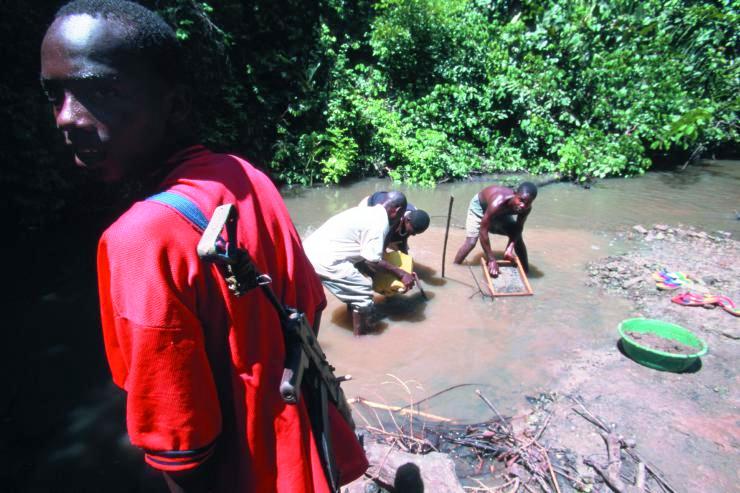Conflict Minerals. A continuous lack of will of the European Institutions.

The current technological societies and the increasing consumption of electronic devices such as computers, mobile phones, tablets and all kinds of batteries have caused an unrestricted search for minerals that are necessary for their manufacture.
Africa is a continent coveted by developed countries because it has the largest reserves of minerals that are considered optimal for the production of new technologies. More specifically, there are a number of minerals found in places of armed conflict in which their governments do not have control over their entire territory. It is the case of the East of Democratic Republic of Congo where there are areas controlled by rebels and armed groups.
The minerals found in these areas are called “conflict minerals” and are grouped together as the so-called 3T+G (tin, tungsten and tantalum plus gold). For years, these conflict minerals have served as sources of funding for armed groups and are beyond the control of their governments. These minerals escape all types of legal control whether they are national regulations (mining codes) or international. Moreover, these minerals are associated with all kinds of injustices ranging from the child labour exploitation to human rights violations as well as the impunity for all types of tax evasion and laundry money crimes.
To prevent these illegal practices and systematic human rights violations, the European Union (EU) legislated in 2017 a voluntary regulation for large companies that use these minerals (3T+G). The companies should report on the traceability of these minerals import along the supply chain. With this information, consumers would be able to know the origin of the materials used to manufacture their electronic devices and ensure, at least, that these devices have not contributed to financing armed conflicts and human rights violations.
The forms of financing to armed groups can be very subtle and occur along the entire supply chain that is divided into processes of extraction, refining or transportation.
The companies that should provide this information resisted the obligatory nature of such EU regulation and convinced the EU legislator to make them voluntary guidelines. Among the arguments used to defend the voluntary nature of the regulation are the confidentiality of agreements with governments for the concession of mining permits, the competitiveness with other mining companies, the role of BRICS countries and the increase of production costs.
These excuses served the EU to lower the obligatory nature of the regulation and reduce it to the degree of voluntary legislation, at least until 2021. Once again, the EU obeyed purely economic criteria at the service of the economy and large companies and forgot its service to society and people; the values of solidarity and transparency; the ethical behaviour and respect for all human beings.
The current EU Regulation on Conflict Minerals propose to apply the OECD standards that encourage companies using 3T+G to source responsibly. The EU naively thought that companies would voluntarily respond to the implementation of these standards, thus breaking with the illegal bailing of these armed groups. However, the reality is completely different. After the (voluntary) implementation of the EU Regulation these armed groups continue to exist and are financed through these minerals, local communities are controlled by rebels, the artisanal miners continue with terrible working conditions, and so on.
The current situation of violence in these territories is not only due to the failure of EU legislation. Accountability must start from the local governments in which the conflict zones are located through transparent democratic institutions and warrant the implementation of national and international legislation. In addition, companies must be convinced of the relevance of a responsible search for minerals. Natural resources and minerals are limited and their extraction causes an unpredictable environmental impact. For this reason, companies must be strict in their application of sustainability measures required in the 2030 Agenda for Sustainable Development Goals and ensure the restoration of mining sites reducing the social impact among the population affected by mining areas. Moreover, companies should provide compensatory measures to the local communities through education, health care services and human rights vigilance.
Companies must show due diligence throughout the supply chain especially in cases where the production processes are closer to mineral extraction. Likewise, companies should avoid those practices that although legal are not ethical with the sole purpose of obtaining more benefits. Thus, it should be a normal practice that companies offer information regarding the origin of the minerals, place of origin, the quantities imported, the prices paid by them at each stage of the production process, the place and companies names where the minerals have been processed and the taxes paid by companies from the extraction of minerals to the final sale of the product. This information would help to know the traceability of minerals, reduce malpractice and promote the legality of the whole process.
José Luis Gutiérrez Aranda,
Trade Policy Officer,
Africa Europe Faith and Justice Network (AEFJN)



